The Joneses is a story from the American south that needs to be told. Moby Longinotto’s documentary tells the story of Jheri Jones, a 74-year-old transgender divorcee who’s lived in Mississippi her whole life. Because her ex-wife kept her from seeing their four sons, the Joneses have a lot of healing to do as a family. The documentary takes us through their history, Jheri revealing her past to her grandchildren, attending church, and her sons coming to their own revelations. It’s the story about forgiveness, endurance, and finding the strength to unapologetically dance by yourself. You can watch a clip here.
I had the opportunity to watch The Joneses at DOC NYC this year and to talk to Jheri over the phone about her life and how she hopes the film will be a source of hope and inspiration. It’s a long transcript, but I hope you’ll read the entire thing because Jones is a truly remarkable woman.
TMS (Charline): Tell me a how this movie came about, how did Moby reach out to you and get such an intimate look into your family’s life?
Jheri Jones: Actually, I met Moby through another friend who is a friend of a mutual friend. And that friend would be a young man who is gay and I worked with him briefly years ago. His name was John Howard, a published author. Very intelligent young man, and I had the pleasure of working with him. He contacted me years later about coming out of the closet and how he would just love to introduce me to a filmmaker who would be interested in, perhaps, doing a documentary about my transition. And long story short, I agreed to meet him he traveled here in 2008, the year that Obama was elected president and this was in the fall. He came and met the family and he wanted to do a documentary about me–we talked about that.
I was worried about the privacy issue, exposing my whole life to the public because being transgender is not fully embraced enthusiastically by most people. So it’s a just matter of protecting myself, and I said at the time, “No, no let’s do something else do something about the election and its effect on us, or people in the community or whatever.” He shot a lot of footage, he went around but nothing came of it and several years after that I finally agreed. He kept asking me if I would and I finally agreed to it. At first, it was just me but as it progressed—I have a gay son who came out of the closet to me, and so he wanted to be part of it also. So we brought in the grandchildren, and the children, and so forth and gradually it evolved into something quite different from what the original intent was.
But it took me a while, after seeing the movie several times, I began to realize the vision and what exactly the theme of the movie is. It’s actually why he filmed the way he did and edited it and so forth. So, I have more appreciation for it now than I did when he first completed the film. But he made successive trips here along with Aviva Wishnow, the producer. And they spent quite a bit of time in Mississippi with my family and myself riding around all over and that’s how it came about.
TMS: Do you think doing this movie had an influence on the way your family saw your transition or talked about it? Like, did having that presence open up conversations that you might not have had otherwise?
Jones: Definitely, it changed our lives for the better, I think. My children and I now can talk openly about our issues. I think it’s brought us closer. Now, the grandchildren did not find out until the film was almost completed, in which they found–the decision was made to reveal to them my true identity: that I was their biological grandfather. We got all the family albums and we sit them down and went through all of them, showing them certain pictures when I was first married, when my children were small, and so forth. And all this was revealed to them, so it was quite a challenge in the beginning–although they have finally come to accept it and my grandson has been really wonderful about it. We are quite close.
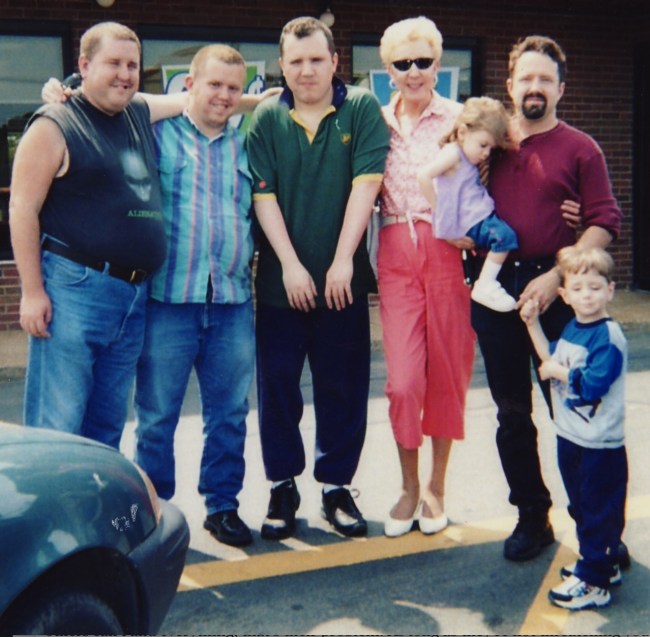
TMS: Something that struck me is that when we get narratives about people who are transgender or queer there’s usually so much sadness, and there was a lot of sadness in this documentary–definitely a lot of hurt, but there also a lot of joy and love in it too.
Jones: Oh yes, yes indeed. I just read a story about the transgender lady in Jakarta, Indonesia that was, she was crowned Miss Transgender in Indonesia. But, it just reinforces what I already knew, of course, which is throughout the world transgender people, it’s just a very challenging life that we have to live and scary at times. We have to be careful and discreet about who we reveal things to, but at my age–and I’ll be 77 in a couple of days, it’s just, I don’t worry about those things quite so much anymore.
After all this time and all that I’ve been through. My children and I, we probably have a really satisfactory closeness in the relationship now, I think. much better than before ">But anyway, we got past the hurdles. And there were a lot of issues from the time they were very small, because I was not allowed to see them for 7 years. And this was their crucial–this was their adolescent period which is so important. What kind of people we’re going to be once we get past that hurdle, so I did sneak around to see my children that my ex-wife did not know about cause I just refused to break that bond.
I was advised by people–I should leave the state and go somewhere else. I said, “No, my roots are here. This is home and I’m not going to be intimidated. And I’m going to stay here and build a relationship with my children. We’re going to get past this.” And we did. And we did. And not long ago, I called a psychologist who was at the University of Mississippi Medical Center for quite a while. He was very surprised to hear from me and I said “I thought you might want to know that I did make it through the transition and everything worked out just fine. And I had the surgery in Europe and came back and there were no complications. Everything went well.” And he lived in Nashville, Tennessee now. He asked me “Why are you still in Mississippi?” like I should move to an area that’s more conducive to the kind of life, you know, being transgender and all where I’d be more comfortable like San Francisco or whatever. And I said, “No, this is my home. I’m going to stay here. I have built a work history as a woman even before surgery and all these negative nay-nay voices telling me it’s never going to work, you can’t do this,”–thank God I did not listen to them and I did what I had to do.
And so, that’s the point I’m at now. I’m trying to get a play that I had written and adapted from a screenplay that I’ve written. I’m working on that now presently, so I don’t know if I’m going to be able to get that done because it’s going to involve quite a bit of money I think. So I’m in the position right now to tackle that. Anyway, life is good and we’re getting along day to day. We’re actually doing quite well.
TMS: I got from the documentary–there’s a lot of bravery in your story which feels so necessary right now. Do you have any words for young trans youth and people who are feeling afraid?
Jones: Yes I do. And for good reason, I can understand there are a lot of people out there that are concerned about his future presidency. How’s he going to effect us? How’s he going to effect our struggle to achieve–effect the transgender and LGBT community overall? After his interview with 60 Minutes and all, he seems to be gravitating towards the middle of the political spectrum, a much more subdued, toned-down rhetoric. I think it’s going to be ok, we need to get past this really big bump we’ve run into. With all the protestors and fears, I really think it’s going to be ok. I’m optimistic I guess.
TMS: What do you want people to take away from your story and your family’s story the most?
Jones: We are all faced with challenges in life. Mine happen to be–one of them happens to be being transgender–it’s not the only major issue i’ve had to deal with, but we’re just people. We’re not monsters, we’re not fleas, we’re not going to change, we’re not a threat to civilization. We are just people. A small minority, I think we will always be a small minority, and we’re just trying to get on with life and find our little niche in society where we fit and be who we are and we’re not infringing on anyone else’s civil rights. So, I don’t–I don’t understand the fear the heterosexual world has for us.
I go to a church that I was born and raised in, it’s a branch of the Baptist, and I know the people there know about me and they sometime will ask, but so far I’ve received nothing but a lot of affection and they’ve been very nice and supportive and I haven’t run into any problems. I know the minister of my church, he frowns on the gay world and all of that and my situation, but he never comes out and says anything to me. I go to that church basically every week and worship. They’re really nice to me, they really are. I’ve been treated extremely nicely and I haven’t run into any name-calling persecution and nothing of that sort. I’m sure there are people out there who would be if I was less discrete about my situations, if I ran around advertising it all the time I’m sure I would encounter a lot of opposition but the people in my community here are–I’m not sure if they know about me or not–but I have very friendly neighbors. They’re nice people and I’m not encountering any kind of persecution. I consider myself very fortunate that I’m not.
My gay son, they believe in wearing their rainbow bracelets and that’s perfectly fine, but what you’re doing is you’re advertising your private life and sexuality to the whole world. I just believe in being discrete, going about your private life and not sharing everything about your life with everybody. I’m comfortable with the rainbow thing, I understand where they’re coming from. They’re frustrated, they want to be part of society, accepted, they don’t want to be made to feel as if they should be ashamed of who they are. I understand all that. It’s just, I told my son, “Well, if I went out there everyday”–and I’m out there everyday because I’m busy. I’m officially retired and i’m doing my son’s accounting for his locksmith business and I’m going to the bank i’m going here and there and everywhere taking care of things he doesn’t have time to do—So if I advertised to those people who I was, I’m sure I would encounter a lot of persecution and a lot of bad experiences and I don’t want to do that.
So I just let people take me as I am. They see me, I look feminine, I pass well. I just don’t put myself out there on display in that way. But, that’s just me. It’s a personal way of looking at this. I’m trying to protect myself from any kind of potential persecution. I just maintain a low profile, and go about my business everyday and based on my appearance and energy they can just see me the way they see me.
TMS: I think that goes along with another thing I noticed about the movie, which is that it’s focused on your transition but we learn so much more about you as a person–who you are as a mother, about your love for dance, things that are just as much part of you.
Jones: Oh yes. We’re much more than just our sexuality. There’s so many other facets to our lives. That’s just one part of it, I’ll grant you it certainly is a major part of it, but it’s been so long now since I completed the transition it’s difficult to remember before, the way I was before except I was extremely unhappy. And frustrated, to put it very mildly and it’s just a very difficult life to try and please everybody else.
And, you know, I can understand a lot of transgender people committing suicide–I’ve talked to quite a few. And I just tell them: Be strong, be strong for yourself. Learn to love yourself and embrace yourself. Not in a selfish way of course, but you need to accept yourself and love yourself. And if others can’t and everything, that’s their problem. As long as they’re not threatening you with violence, all you we can expect, in my situation, all I can expect is tolerance and respect. I don’t expect people to understand, people who haven’t walked in my shoes, how can they understand? And it most definitely isn’t a choice. I really have a problem when I hear people talk about “You made a choice to do that.” No. I made a choice as to how I was going to address it, how to resolve it. But i didn’t make a choice to being this way, for having these feelings. That’s just–you know.
TMS: Your choice was to be yourself.
Jones: Right. It’s all about just being yourself. So I don’t understand people’s fear. I do understand in a way–I mean the great big unknown, it’s just something they don’t encounter everyday and I’ve had a very, very difficult time with men trying to engage in a relationship of a romantic nature with guys because almost to a jot and a tittle they are violently opposed to this. And we’re talking heterosexual men. I had a few really bad encounters and some violence, but I’m very fortunate to have survived all that. I’ve reached a point where having a love relationship and marriage, that’s not so important anymore. I’m perfectly independent and happy to be alone without a man, and I have a very busy life, very active and all kinds of things going on. So I really don’t have time for it anyway.
For a while I did go on the dating sites and try to meet someone, but anytime I confronted the person with this story, this situation about me, almost always they reacted very negatively. It was just very difficult for most guys to accept this. I did meet one man–I was in a relationship for six years. Very devoted, it was an exception to the rule. And he really, really loved me and he gave me all the moral support he could, but we had other problems in the relationship that had nothing to do with my sexuality. He was a Vietnam veteran, and very damaged. Post-traumatic stress and all of that he went through in Vietnam, so it was very difficult for him to get past that…Anyway, life is good and we’re moving on.
TMS: I think one of my favorite moments in the movie is near the end when you’re at the dance class and saying “Come what may. C’est la vie.” What’s your favorite moment is, now that you’ve seen it a few times?
Jones: There was one, I’m thinking with my grandson and his acceptance of me and he jokingly called me “Grandma-pa” and just the little twist that became my label, or hashtag or whatever. Grandma-pa. But he loves me and he’s accepted this completely and I think my granddaughter has too. She doesn’t communicate much, she’s very very introverted. Very intelligent, the head of the class. She’s a miracle to me…She’s soon to be 17 and she’s in high school and I think she’s going to be really great.
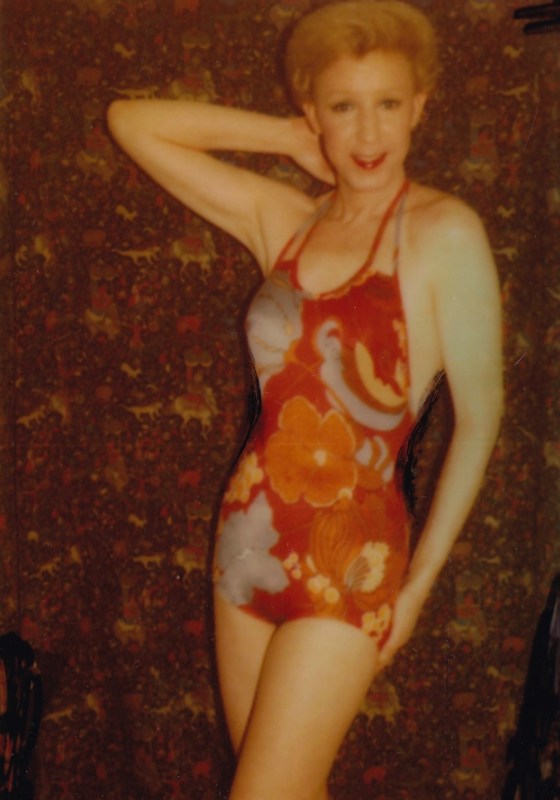
TMS: How has your family reacted to the final documentary? Were they happy with it?
Jones: Yes, my son that’s married and has the lock business, he and his wife post all the original–I was given a rough copy before the final editing and music and everything was put in place. Everybody has been very supportive within the family. I have some extended family members that I don’t socialize with on a day-to-day basis. They pretty much shut me out of things, but I have one surviving brother–all my family is gone now except my brother who is a college professor and he lives in another county close to mine. And he’s accepted it completely, so the only one that I had problems with was my daughter-in-law since there’s a lot of tension there. She has her own personal issues and it’s nothing to do with me, but she didn’t want to be part of this film and continues to not want to. That’s very sad, it really is–but that’s what I have to deal with. You can’t please everyone, but overall the film’s impact on my family has been positive. It’s been good.
TMS: To end this, I just want to say thank you for telling your story. It was really brave of you and your family and I think it’s going to mean a lot to a lot of people, including myself.
Jones: I hope so, because that’s the underlying reason for doing this documentary.
TMS: And especially because you said you’re more of a private person.
Jones: Yes, well thank you so much.
You can learn more about The Joneses here, I whole-heartedly recommend it.
(Images via Bunny Lake Films)
Want more stories like this? Become a subscriber and support the site!
—The Mary Sue has a strict comment policy that forbids, but is not limited to, personal insults toward anyone, hate speech, and trolling.—
Follow The Mary Sue on Twitter, Facebook, Tumblr, Pinterest, & Google+.



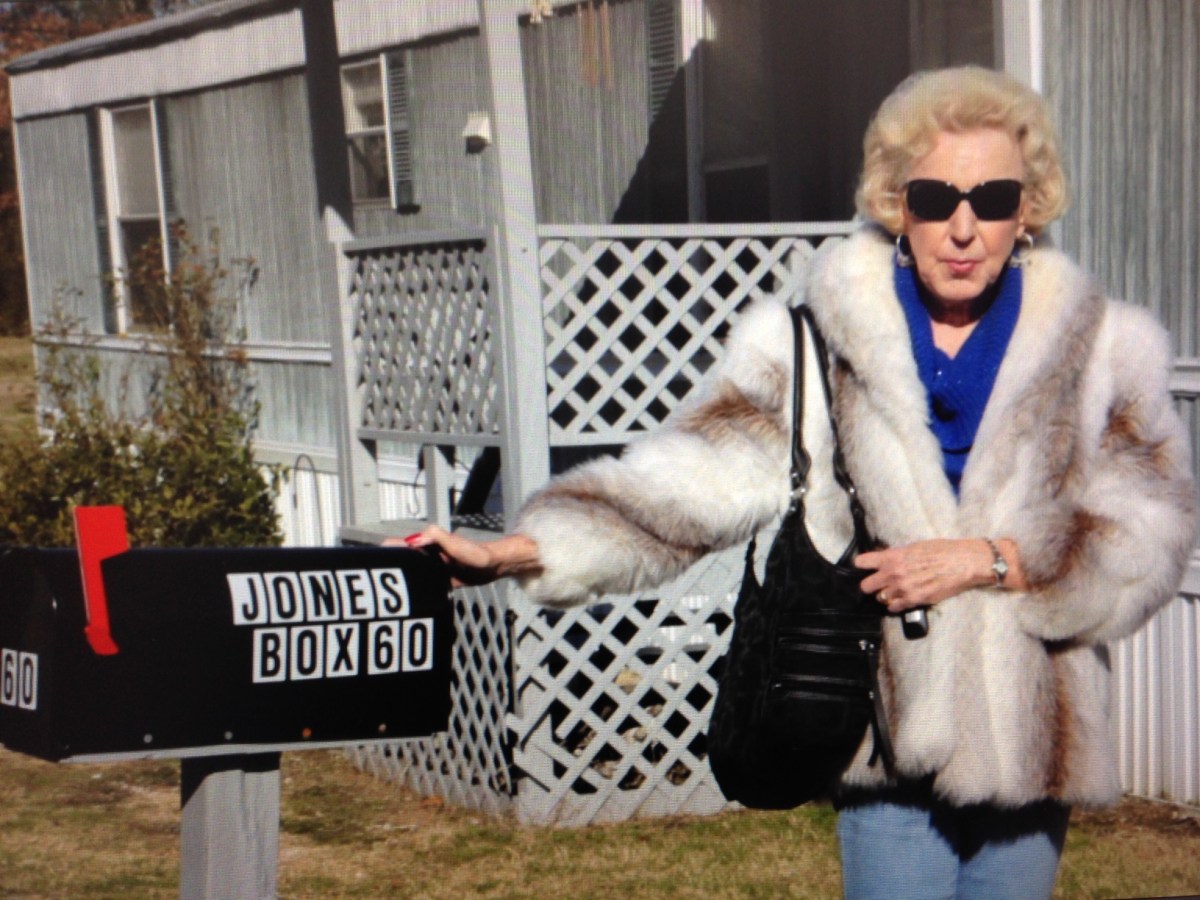
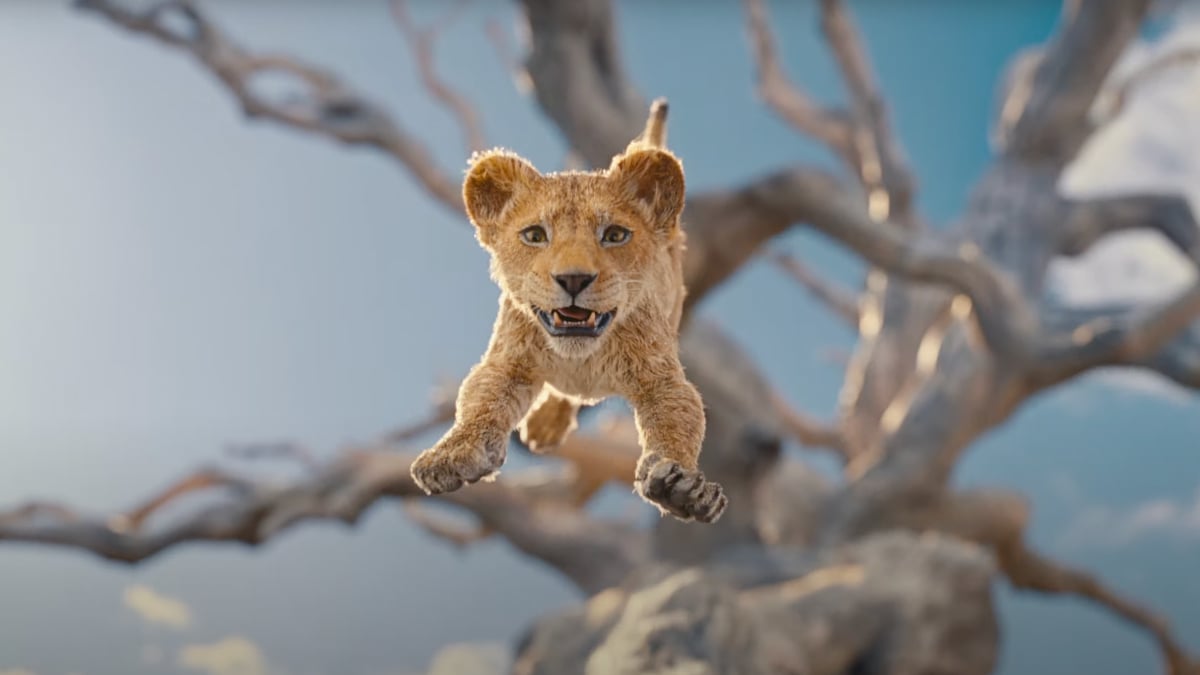
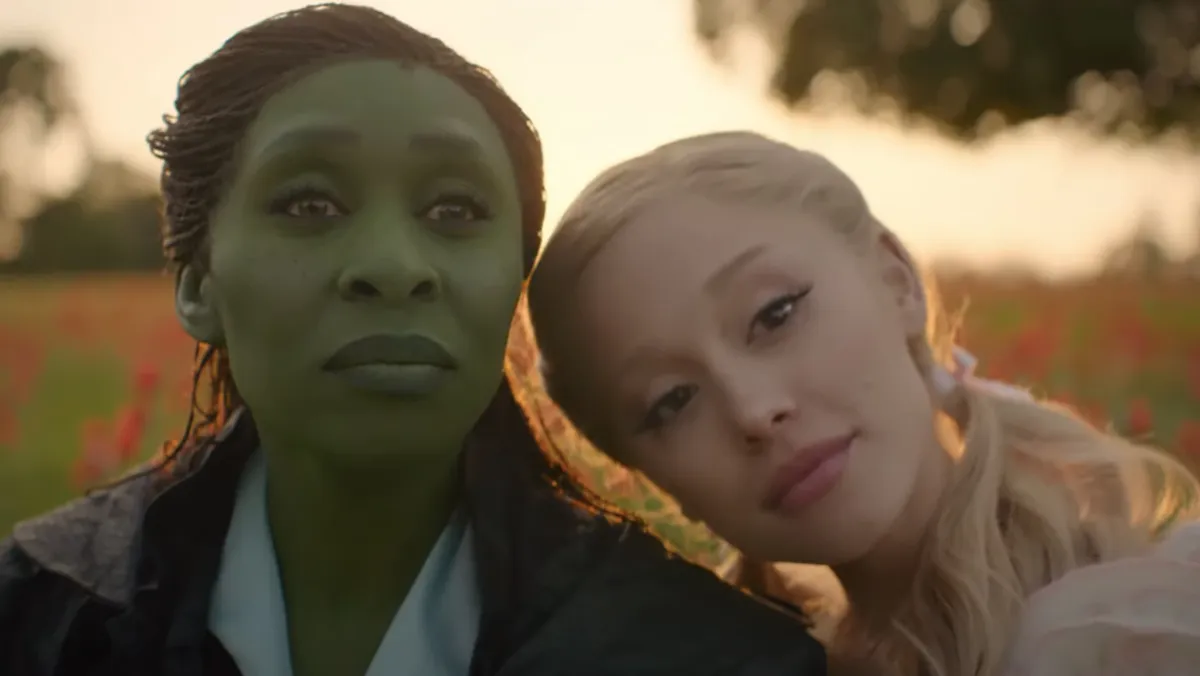



Published: Nov 17, 2016 06:02 pm